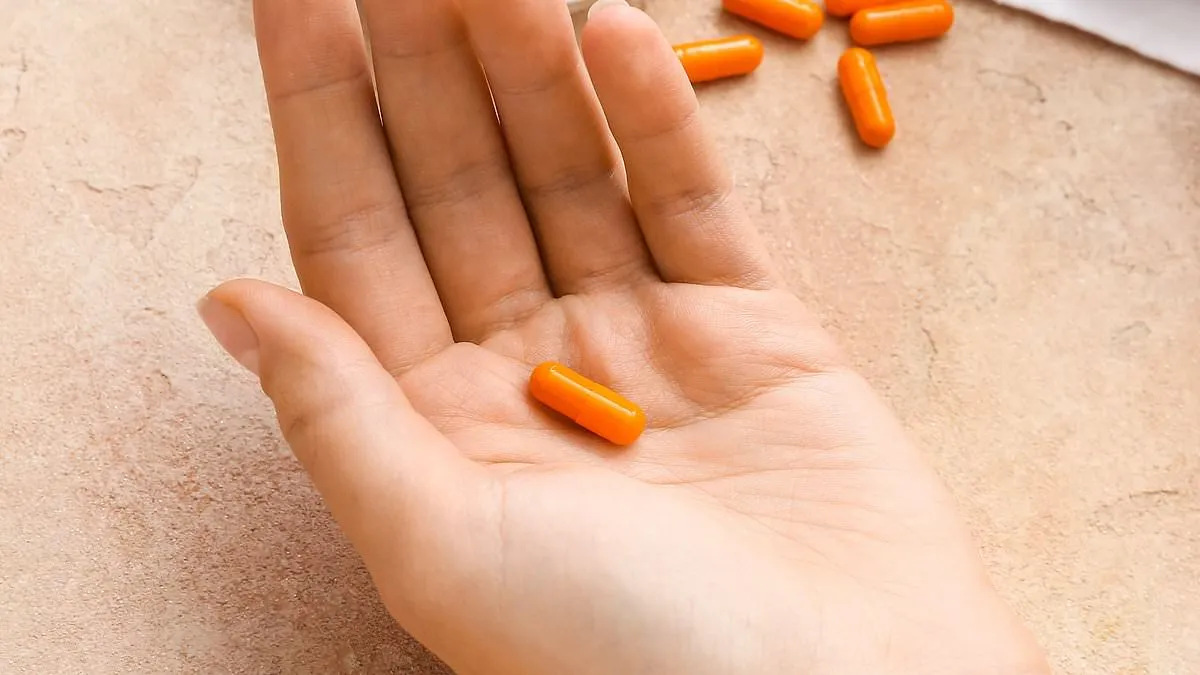
A New Jersey woman named Katie Mohan has made a solemn vow never to take a supplement again after a harrowing experience that nearly cost her liver. At 57 years old, Mohan began her journey with turmeric supplements in March, after being influenced by a doctor on Instagram who claimed that turmeric could effectively combat inflammation and joint pain.
Mohan purchased these turmeric pills online, convinced they would enhance her overall health. However, within weeks of daily consumption, she started experiencing troubling symptoms including severe stomach pain, nausea, and extreme fatigue. Alarmingly, her urine darkened, signaling a potential crisis involving serious liver damage.
The turning point for Mohan came when she learned about another individual suffering similar symptoms. This man had been hospitalized due to liver damage while taking daily doses of turmeric supplements. "A light bulb went off in my head," she recounted in an interview with NBC News, "and I said, 'Oh, my gosh! I wonder if this is what's wrong with me?'" This realization prompted her to visit the emergency room, where a blood test revealed that her liver enzyme levels were alarmingly 60 times higher than normal.
Doctors informed her that she was just "one step" away from liver failure, a condition that could have necessitated a life-saving organ transplant. Mohan's turmeric supplements contained approximately 2,250 milligrams (mg) of curcumin per pill, the active compound in turmeric that gives it its vibrant color. This dosage is about 11 times higher than the daily limit recommended by the World Health Organization for an average woman weighing around 150 pounds.
While turmeric is a popular spice known for its use in various dishes, especially curries, it has gained a surge in popularity as a dietary supplement, particularly among individuals suffering from arthritis. Claims that it can effectively reduce inflammation and alleviate joint pain have fueled this trend. However, healthcare professionals caution that excessive consumption of turmeric supplements can pose significant risks, including potential liver damage due to an immune reaction within the organ.
During her six-day hospitalization, Mohan received an IV drip to help stabilize her condition. Dr. Nikolaos Pyrsopoulos, a hepatologist at NYU who treated her, emphasized the severity of her situation, stating, "It was very serious. Katie actually was one step before full liver damage, liver failure, requiring a liver transplant." Fortunately, Mohan’s liver was able to recover, an outcome made possible by the organ's unique ability to regenerate itself.
Reflecting on her health scare, Mohan expressed her firm decision: "I'll never put another supplement in my body again." She described her experience, noting, "I just did not feel well generally. I also noticed that despite drinking a lot of water every day, my urine was darker."
Current estimates suggest that approximately 11 million Americans regularly take turmeric supplements, particularly those seeking relief from arthritis-related symptoms. However, the rising popularity of these products has coincided with an increase in liver transplants attributed to dietary supplements. A 2022 study revealed that from 1995 to 2020, the incidence of liver failure linked to supplements surged eightfold.
As more individuals turn to turmeric amid claims of its benefits—ranging from inflammation reduction to potential cancer-fighting properties—it is crucial to approach such supplements with caution and consult healthcare professionals before making any decisions.